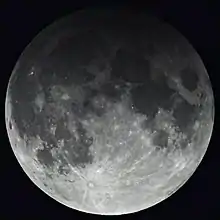
A penumbral lunar eclipse took place on Monday, December 28, 1936. It was visible from Americas, Europe, Africa, Asia and Arctic.
Visibility

Related lunar eclipses
| Descending node | Ascending node | |||||
|---|---|---|---|---|---|---|
| Saros | Date Viewing |
Type Chart |
Saros | Date Viewing |
Type Chart | |
| 103 | 1933 Feb 10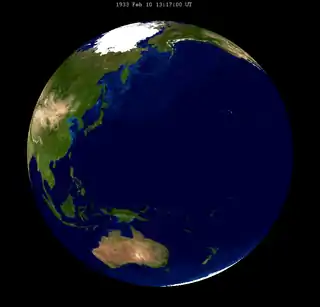 |
Penumbral |
108 | 1933 Aug 05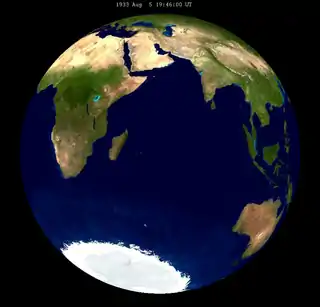 |
Penumbral | |
| 113 | 1934 Jan 30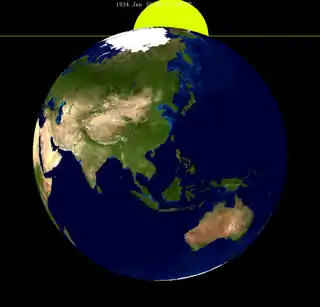 |
Partial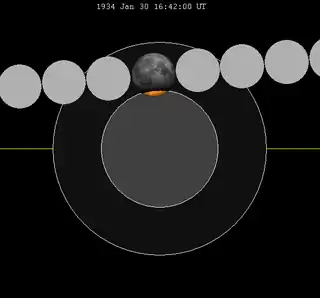 |
118 | 1934 Jul 26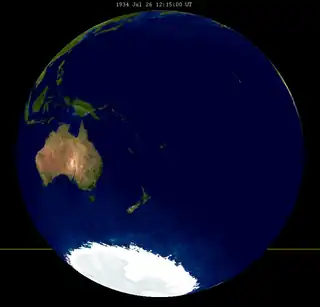 |
Partial | |
| 123 | 1935 Jan 19 |
Total |
128 | 1935 Jul 16 |
Total | |
| 133 | 1936 Jan 08 |
Total |
138 | 1936 Jul 04 |
Partial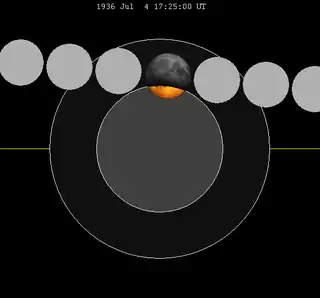 | |
| 143 | 1936 Dec 28 |
Penumbral | ||||
Half-Saros cycle
A lunar eclipse will be preceded and followed by solar eclipses by 9 years and 5.5 days (a half saros).[1] This lunar eclipse is related to two partial solar eclipses of Solar Saros 150.
| December 24, 1927 | January 3, 1946 |
|---|---|
 |
 |
See also
Notes
- ↑ Mathematical Astronomy Morsels, Jean Meeus, p.110, Chapter 18, The half-saros
External links
- 1936 Dec 28 chart Eclipse Predictions by Fred Espenak, NASA/GSFC
This article is issued from Wikipedia. The text is licensed under Creative Commons - Attribution - Sharealike. Additional terms may apply for the media files.
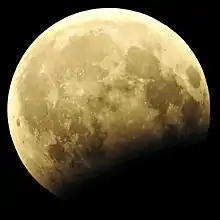
_(cropped).jpg.webp)
